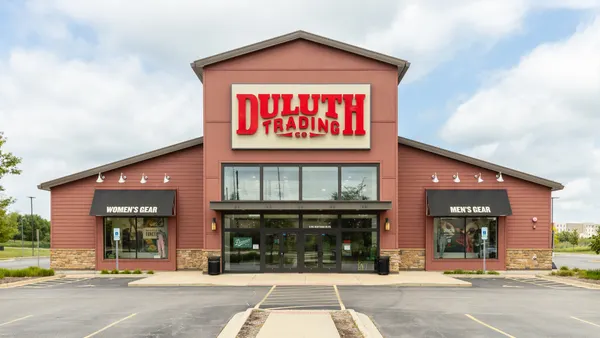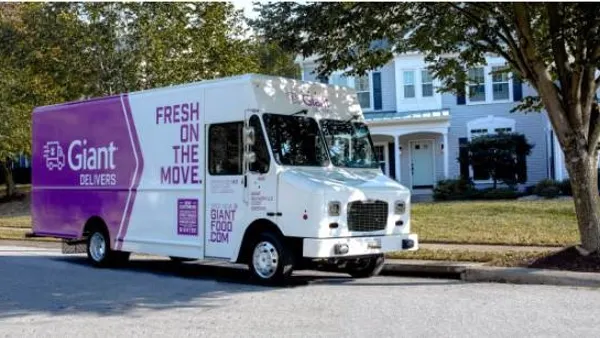Dive Brief:
- Walmart suppliers will hear a new requirement at this year's annual conference: be prompt 85% of the time or face a fine, The Wall Street Journal reported Monday.
- The policy is part of Walmart's push for on time, in full deliveries, which has been in the works for over a year. The retailer began fining suppliers who did not meet the requirement 75% (if a large partner) or 33% (if a small vendor) of the time last August.
- The tightening delivery time reflects the superstore's plan to fund its online battle with Amazon and others by turning store product more rapidly, and by ensuring desirable products are consistently available. The company also seeks to order less, more often.
Dive Insight:
The new requirements will hardly be a surprise for suppliers: Walmart has been clear it hopes 100% of its products will be delivered on time (within one or two days, depending on vendor type) and without inventory errors as soon as possible.
To reach that goal, Walmart set out a clear timeline for enforcement. The retailer announced its intention at last year's supplier conference, and begin fining suppliers who did not reach target levels in August. Now, in January, the targets are being increased as its battle royale with Amazon intensifies.
The impact on suppliers is likely to be significant, according to procurement experts.
"Suppliers have had to adjust to increased demands by Walmart through the years, and most have seen this next step in supply chain speed and accuracy coming," Tony Uphoff, Thomas President and CEO told Supply Chain Dive. "This being said, it will be a very difficult transition for some suppliers, especially those that haven’t invested enough in the enabling technologies that will allow them to better manage their supply chains."
As suppliers struggle due to Walmart's policy, other customers will likely have their lead times extended and renegotiated, Uphoff added. With the rising costs of fuel and trucking capacity being squeezed, suppliers are likely to struggle maintaining their margins, too.
"It's quite possible that some of the 4,000 suppliers to Walmart will drop out, given already low margins and an inability to predictably meet these new supplier guidelines," Uphoff said.
The motivation behind it is obviously a move to increase product availability so as to fuel sales levels, a strategy that has also spread to Kroger, which rather than charge a percentage of the order total, instead levies a straight $500 per day for deliveries made past a two-day window.
A tighter, more predictable timeline should help avoid retailers avoid stock outs. To do this, The Wall Street Journal reports Walmart also plans to share some of its inventory availability data with suppliers beginning this year. If Walmart and its suppliers both invest in technology to meet this new requirement, the retailer's supply chain visibility should improve.
"It’s likely this announcement from Walmart will accelerate the need for suppliers and logistics companies to increase their tech investments, so they have the data and systems to competitively manage their supply chains and make delivery times more accurate and transparent," Uphoff noted.
Altogether, these new policies could lead to a retail reshuffling of suppliers — or a transformation of the industry as a whole as suppliers bring the benefits improved efficiency to other clients.
And the $64,000 question of how this latest demand on suppliers will play out in the Walmart versus Amazon battle?
"Existing suppliers and retailers are all dealing with the disruption that Amazon has brought into the market," said Uphoff. "It’s likely you will also see new supply chain options and new suppliers who see opportunity in the challenges that existing retailers and suppliers have in adjusting to these new market realities."













